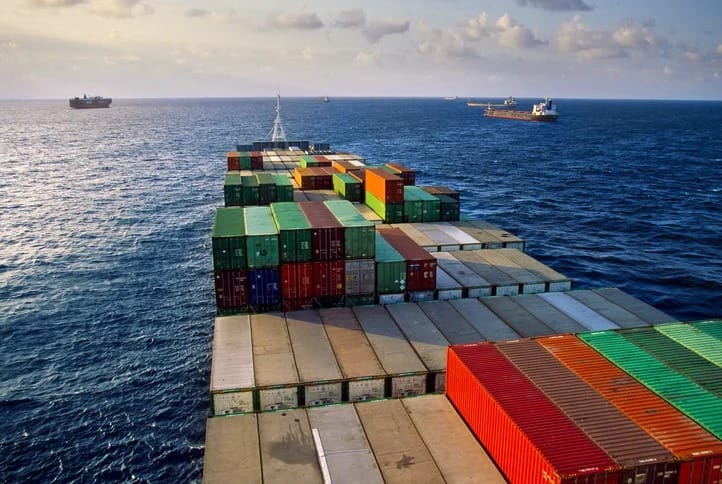In the last 15 years, the world of international business has become more complex. Previously, for companies operating in international markets—exporting, importing, and investing—the fundamental criterion of action was efficiency: reducing costs and increasing business volume and profits.
The growth of international trade has slowed down. In the previous two decades, the growth rate of international trade had been double that of global GDP. Starting in 2008, international trade and GDP began to grow at approximately the same pace. A new term began to gain popularity: deglobalization, which some exaggeratedly announced as the great future trend of the international economy.
Then came the pandemic, which caused major disruptions in production, transportation, and supply chains. And this year, the war in Ukraine has significantly worsened these disruptions.
The pandemic and the war have made a second criterion in business operations vital: resilience, security, and minimizing disruptions that can cause disturbances such as wars, pandemics, or natural disasters.
When relocating production facilities or seeking suppliers of intermediate goods abroad, companies must consider, in addition to cost-related factors, the security of their supply chains. This is where new concepts emerge. Reshoring, Near-shoring, such as the shortening of global value chains. The most recent term to emerge is probably Friend-shoring: it refers to sourcing, both with in-house facilities and external suppliers, from "friendly" countries that share political values.
And in the near future, almost immediately, companies will need to consider other criteria in addition to the two mentioned, efficiency and resilience. I am referring first to the criterion of human rights. Germany has already passed a law requiring companies to establish mechanisms to ensure that human rights are respected in their supply chains. The EU is studying legislation on the topic. The U.S. has passed the Uyghur Forced Labor Prevention Act (UFLPA), which requires companies to demonstrate that no forced labor was involved in the importation of products from Xinjiang (China).
New requirements for businesses and governments
The rise of what we can broadly refer to as geopolitical factors imposes important requirements for the actions of both businesses and governments. Let's briefly review some of them.
First, companies must create a risk map for their supply chains. This means, on one hand, identifying the critical points in them, that is, which segments of the supply chain affect essential goods for the company, without which its activity would be seriously disrupted.
And, on the other hand, it involves identifying the main risks or vulnerabilities they may face. To give an extreme example, a European or American textile company that relies on cotton imported from Xinjiang must be aware that this is a critical point in its supply chain and is susceptible to punitive measures from the administration (of the U.S. or the EU).
And what applies to companies can also apply to countries. They must identify, like companies, the critical points and risks in their supply chains. Dependence on gas from Russia is the clearest example that can be cited (it has been criticized that if Germany had conducted this analytical exercise earlier, it would not have such a high dependence on Russian gas. But of course... it's easy to make these criticisms in hindsight).
Secondly, companies must develop intelligence systems. The concept of intelligence is somewhat ambiguous and is often used loosely to refer to topics that are not related to intelligence, such as terrorism or cybersecurity. Intelligence, in the economic field, has two components: information gathering and analysis of that information (in order to identify risks and forecasts). And in the more specific field of international business, we need to talk about intelligence for internationalization, which has its own nature.
Thirdly, companies and administrations must think with a long-term vision. Everything seems to indicate that the risks of pandemics, natural disasters (primarily caused by climate change), armed conflicts, and a wide range of geopolitical risks will be present in the future.
Various media outlets have reported in recent weeks, for example, that a significant number of multinational companies are requesting reports on the risks posed by a war due to China's invasion of Taiwan. Companies operating in China (exporting or importing products, not to mention those with production facilities in the country) need to use the intelligence systems I referred to earlier to analyze possible scenarios and future risks, and how to protect themselves against them.
Finally, fourthly, we have entered a stage where governments will play a much more active role in economic activity. Firstly, to promote or protect, using the tools at their disposal, strategic sectors.
Energy (particularly renewable energy), defense, cybersecurity, logistics, and transportation are some of the strategic sectors in which governments will intervene in various ways: monitoring the influx of investments from foreign companies dependent on countries with authoritarian or "unfriendly" political regimes, supporting private sector investments with subsidies, tax breaks, and other economic policy tools, and participating directly in companies, etc.
Source of the article: realinstitutoelcano






